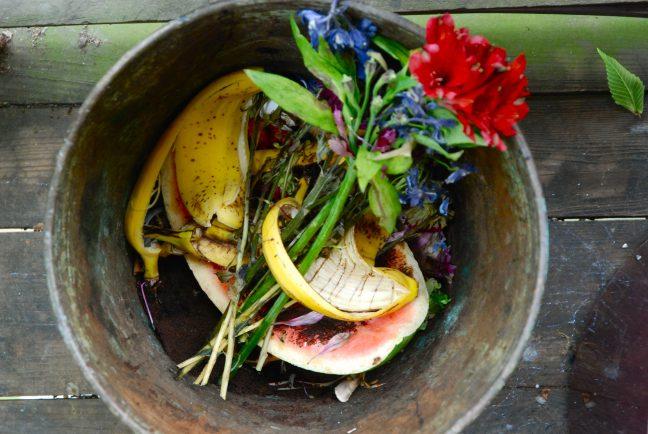As Thanksgiving leftovers become too much to stomach, it’s time for season’s greetings and to look for ways to dispose of Grandma’s pumpkin pie.
Instead of simply throwing it in the trash, Madison residents can now participate in the city’s organic waste program: Food Waste Diversion.
The program offers a sustainable solution for those looking to reduce their carbon footprint by the process of composting.
Composting turns food waste into nutrient rich soil that can later be returned to the Earth to grow more food. If organic material is left to decompose in landfills, it can produce methane, which is more harmful than carbon dioxide as a greenhouse gas.
The program, originally piloted in 2011, currently serves selected parts of the city. By the end of 2017, the city hopes to have grown the program to include at least 2,000 residents and 60 businesses.
But the program has experienced some issues with getting people to compost correctly, Bryan Johnson, the city’s recycling coordinator, said.
“People compost plastic bags or glass,” Johnson said. “Even people who are volunteers make mistakes, either because they intend to do the right thing, but don’t, or because they assume someone else is going to take care of it.”
To address some of the mistakes, Johnson has presented two solutions to the problem: extra bin security and monitoring.
The Willy Street Co-op contains a food waste bin with no open top and in order to open it, one must pull out a drawer and unscrew the lid. This extra step prevents waste from haphazardly being tossed in, Johnson said.
At Brat Fest, an annual food festival and fundraiser, Johnson said there was a cop who monitors what people throw in the bins, which helps make sure that people are throwing out their waste accordingly.
But at the heart of it, composting is really simple, Aaron Conradt, University of Wisconsin senior and student leader at WeConserve, said.
“Anyone can do it,” Conradt said. “You drop it in a compost bin, recycling picks it up like any other waste and microbes will come in and do the rest. Just throw it in, and it works.”
WeConserve is a student-run program that is dedicated to conservation and waste elimination on campus.
Similarly, F.H. King Students for Sustainable Agriculture, another conservation group on campus, runs a neighborhood composting program, Food Cycle Freight, during the warm seasons. There are regular pickup routes that run five to six days a week that are operated by student volunteers on bikes with bike trailers who move materials to a local farm, Tony Stanto, F.H. King member, said.
“There are 15 or 20 drop sites where anyone can come and drop stuff off,” Stanto said. “We would like to expand it, but it is costly to maintain bikes and trailers. We usually end up with about as much compost as we can use.”
The program brings all of its food scraps to a farm in Eagle Heights where it uses the compost to grow vegetables and complete the food’s full cycle.
As efforts to compost proceed, Conradt hopes to continue educating members of WeConserve and the community at large about the process and improving it as well.
“Visit a farm sometime, and take time to truly appreciate where your food comes from,” Stanto said. “This can inform you of more sustainable eating habits as well as create a greater enjoyment of your food.”


